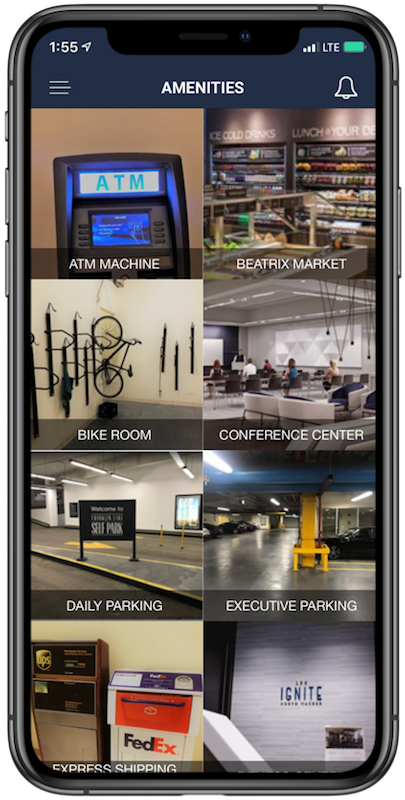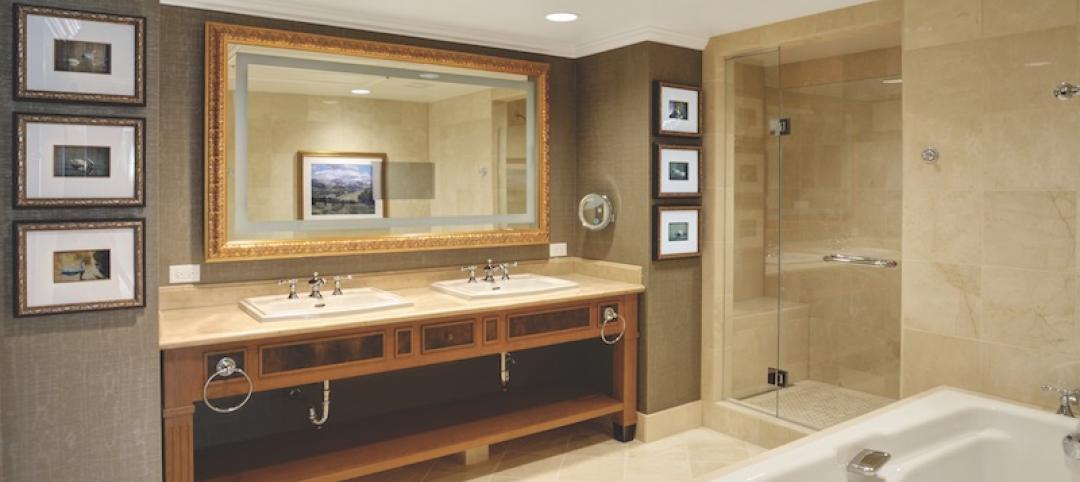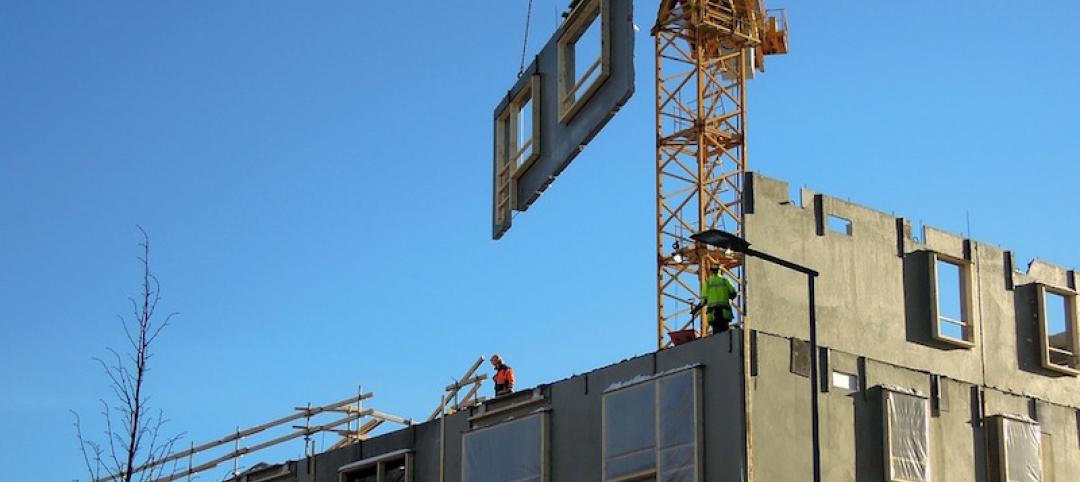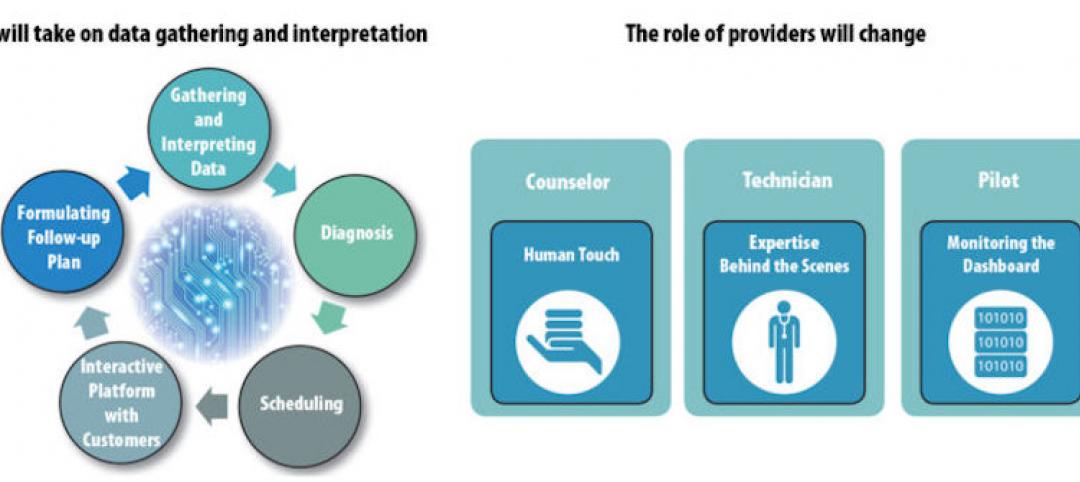What started out as a consulting assignment ended with the installation of a new intelligent building platform, incubated by a leading engineering design firm, into two high-rise office buildings in Chicago.
The IoT-enabled platform, which unites a building’s various workflows, is from Cohesion, a company launched in August 2018 after being spun out from Environmental Systems Design (ESD), which has been at the forefront of designing intelligent buildings. The two buildings in which Cohesion’s app is now live are owned by The John Buck Company, a Chicago-based real estate services developer.
John Buck had initially hired ESD to upgrade the technology in different buildings within the developer’s portfolio. After John Buck asked about possible vendors, ESD decided that it would develop the app itself, according to Laura Hagan, Cohesion’s director of marketing.
She explains that the two buildings—the 35-story, 807,000-sf 151 North Franklin, which opened in 2018; and the 48-story 1.12-milliion-sf 155 Wacker Drive, which opened in 2009—are rigged with I-nodes, little black boxes that, she says, act like routers that connect different systems. The I-nodes transmit data to Microsoft’s Azure Cloud, which in turn supports the app.
One of Cohesion’s software partners is Iotium, whose product integrates with and connects systems already in the building.

Building occupants can use Cohesion's app to gain more direct access to a building's amenities. Image: Cohesion
Cohesion’s software provides building occupants with comprehensive and direct access to their building’s amenities, information, and documents. It also provides a single interface for occupants to take actions, such as reserving parking spots and bike storage, or viewing the availability of equipment in the building’s fitness center.
Select tenant companies have chosen to launch mobile credentials and/or building visitor management functionalities. So, for example, if a tenant invites a guest to a meeting in the wired building, Cohesion would streamline the process by setting up the appointment, alerting security and relevant parties about the guest, and would send an email to the company upon the visitor’s arrival.
All 13 tenant companies at 151 North Franklin and the 40 tenant companies at 155 Wacker are using the app. When a new tenant comes into the buildings, they are onboarded onto the app.
“The real estate industry is experiencing significant technological disruption, and our solution benefits all stakeholders across the operational lifecycle—from owners to tenants,” says Thru Shivakumar, Cohesion’s CEO. “By connecting all the systems and human interactions in a building, we can provide the most powerful insights to deliver efficient and sustainable building operations,”
Cohesion charges the building’s management a setup fee and a monthly service fee. “It’s up to them whether they want to pass along those costs to the tenants,” says Hagan.
The new company is currently in fundraising mode, and is expected to close its latest financing round in June, at which point it plans to hire 35 employees over the following 12 months. (Cohesion currently operates with a 24-person team located in Chicago and Banaglore, India.) Hagan says that, including John Buck, Cohesion has commitments from three developers across eight buildings.
It also has an innovation pipeline to develop new uses for its app, possibly including building performance analytics.
Related Stories
Building Technology | May 5, 2017
Tips for designing and building with bathroom pods
Advancements in building technology and ongoing concerns about labor shortages make prefabrication options such as bathrooms pods primed for an awakening.
Building Technology | Apr 21, 2017
AIA selects 2016 Upjohn Research Initiative Projects
Grants awarded to initiatives that study various aspects of design within the built environment.
Building Technology | Mar 9, 2017
Prefabrication's predicament: It's much harder than it looks
Many of the nation’s largest contractors, including Gilbane, Mortensen, Skanska, and Turner, have been utilizing prefab techniques on select projects for a decade or more.
Great Solutions | Mar 8, 2017
Pop-out balcony is a breath of fresh air for stuffy hotel rooms and apartments
In less than one minute, Bloomframe transforms from an insulated picture window to an open balcony.
Building Materials | Feb 15, 2017
New metamaterial cools roofs without any energy consumption
The material is barely thicker than aluminum foil and can be economically manufactured for large-scale residential and commercial applications.
Building Technology | Feb 13, 2017
Denver’s ‘smart neighborhood’ will be packed with futuristic technology
The neighborhood will become a test lab for innovative technology.
Virtual Reality | Feb 1, 2017
Tour ancient buildings and cities as they were when new with Lithodomos VR
An Australian archeological startup is bringing the ancient world to a VR headset near you.
Building Technology | Jan 30, 2017
Machine learning could help buildings notify occupants about critical systems failures before they happen
Data from sensors built into HVAC units paired with a machine learning algorithm predicted 76 out of 124 real faults for an Italian hospital.
Building Technology | Jan 27, 2017
The driverless clinic: How buildings powered by AI can help promote wellness and enhance human connections
In the future, we envision that the smart technology in our phones will be embedded in the items we wear and the objects we use.
Building Technology | Jan 24, 2017
A U.S. startup is working with Dubai to advance 3D printing for construction
Cazza Construction Technologies is building a crane that it claims can layer more than 2,000 sf of concrete per day.
















